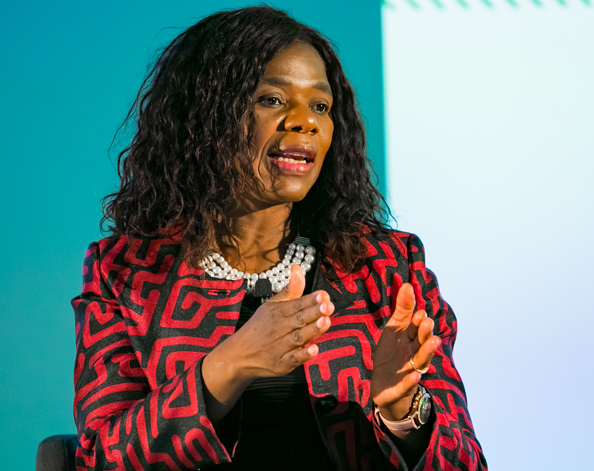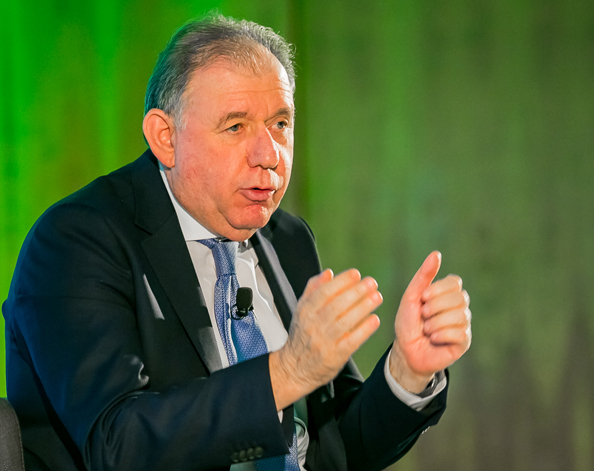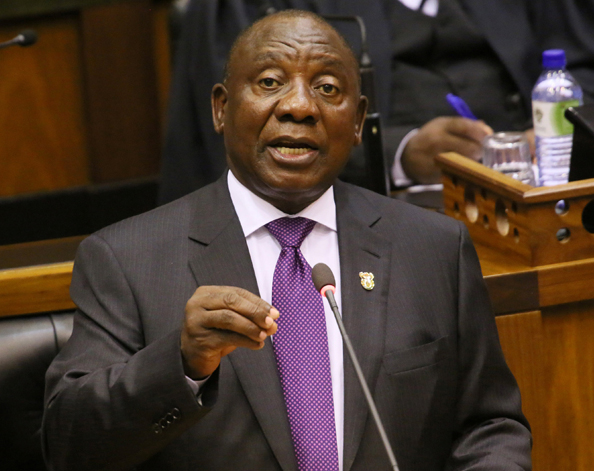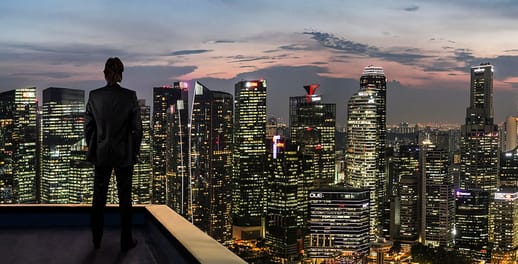Investec Corporate and Institutional Banking hosted an engaging discussion for clients who were able to draw on the insights and experience of two outstanding South Africans and leaders in their fields.
The challenge, as articulated by the speakers, is particularly important because South Africa has been afforded what one could all a window of opportunity. The new leadership under President Cyril Ramaphosa provides the promise of not just reversing the failings that have held South Africa back over the last decade, but also to identify new growth opportunities that benefit the majority of South Africans. As Madonsela noted, “We are a great country, but we’ve never really achieved our full potential in terms of greatness.”
Key areas of focus
There are broadly three areas that need to be tackled for these goals to be realised, the speakers argued:
- Restoring credibility in the state and state-owned enterprises (SOEs) by addressing corruption and poor corporate governance.
- Restoring fiscal credibility by taking steps to balance the Budget over the long term and putting state finances back on a solid footing (much of this is linked to the previous point).
- Introducing economic policies that foster inclusive growth.
Stephen Koseff on tackling corruption in SOEs
Both Madonsela and Koseff applauded steps taken by new President Cyril Ramaphosa to address the first two issues. Said Madonsela, “There are signs we are tackling corruption meaningfully, that is without impunity. Suddenly the hawks have awoken from their slumber, and President Ramaphosa and Minister Pravin Gordhan are busy tackling the rot in SOEs, and shaking up not just Eskom, but also Denel, SAA, Prasa and others.”
When it comes to the SOEs, you need to start at the top, Koseff said. “The first thing you’ve got to do is remove the board, CEO and CFO. Start at the top and filter down; you’ll always find a lot of honest people lying under the rocks that were too scared to speak out. Work hard on the culture and dealing very firmly with the cause of corruption.”

Corruption is not just a thief of a country’s resources. It is also a major force that works against development.
Madonsela added that ordinary people are the victims of corruption. “Corruption is not just a thief of a country’s resources. It is also a major force that works against development,” she said.
“Corruption is not just the tenders that are given to people, it’s not just state capture as we’ve seen with the Zuma-Gupta alliance, there’s another kind of corruption, where the democracy dividends are [supposed to be] directed to communities,” she pointed out.
However, these are merely the first steps necessary before implementing the policies that can satisfy the aspirations of all South Africans – in short, inclusive growth.
Advocate Thuli Madonsela on signs that corruption is being dealt with
Inclusive growth
What inclusive growth means for Koseff is simply where “everyone feels benefit of growth and [we] uplift people from poverty”.
“People around the country must feel the development. Growth is focused on the top end of the market at the moment. We need the whole of society to experience growth,” he added.
“Everyone must buy into the concept,” said Madonsela. “They must feel included in growth so they feel they have a stake. We mustn’t miss the opportunity to utilise everyone’s potential. Where everyone’s potential is freed, everyone’s life is improved.”
What does South Africa need to do to get inclusive growth going then?
“The president is trying to create a business-friendly environment. Without it you won’t get accelerated inclusive growth,” said Koseff.
One important step is to eliminate red tape, Koseff argued. “Don’t trip everyone as they walk past, by having silly laws to satisfy some lobby group.”

People around the country must feel the development. Growth is focused on the top end of the market at the moment. We need the whole of society to experience growth.
Meeting the challenges of education and unemployment
Job creation is another area, Koseff argued, with the Youth Employment Service (YES) a good example. “YES should support activities outside the traditional corporate sector – focus on rural areas, township economy, hotel schools for example, and other kinds of service providers. Get people a skill that they can then earn a living, inside a corporate or on their own. We need to create small businesses – with a big focus on the township economy with the YES and rural economy.”
"We have Titanics that have already been created and the best way to grow an economy is you invite people and they get 20-25% on that Titanic and you’ll try and grow it. That’s not the way economies are growing in the world. If you look at the fastest-growing economies they’re the ones who invest in start-ups.”
Madonsela agreed. “In terms of growing the economy of South Africa, we have Titanics that have already been created and the best way to grow an economy is you invite people and they get 20-25% on that Titanic and you’ll try and grow it. That’s not the way economies are growing in the world. If you look at the fastest-growing economies they’re the ones who invest in start-ups.”
Madonsela suggested a kind of Dragon’s Den / Shark Tank model, where investment and managerial / skills support are provided to entrepreneurs. “And look beyond the major centres – let towns and cities decide what they are good at. Don’t just look at rural areas in terms of agriculture, but in terms of tech as well.”
Skills and education are important, both argued. “25 million coding jobs are moving out of India to Kenya and Ethiopia – we need to build skills to capitalise on that movement as well,” said Koseff.
Education is a big challenge. “If you don’t fix education, we won’t build a talent pool to be globally competitive. We can’t rely on the private schooling system,” said Koseff.
Madonsela referred to examples from the World Bank on how the education system had been improved in Malawi, Kenya and Ethiopia through social accountability – involving communities and business in monitoring the education process.

Every municipality, organisation, and home needs a Ramaphosa – we need these hope-builders, CEOs of their own lives.
We need more “hope-builders”
In the end though, both speakers were positive about what the new Ramaphosa leader can achieve. What Ramaphosa has done is to create hope where there was once hopelessness. “It takes a confident leader to rebuild hope. It doesn’t start at a point when you’re winning. Ramaphosa came at a point of despair, he inspired hope, sparked feelings that we can do something,” she said.
“Every municipality/organisation/home needs a Ramaphosa – we need these hope-builders, CEOs of their own lives.”
Koseff added that what South Africa needs is a flywheel effect. Hope and confidence can, like a big flywheel, set other parts of the economy into motion.
Receive Focus insights straight to your inbox




